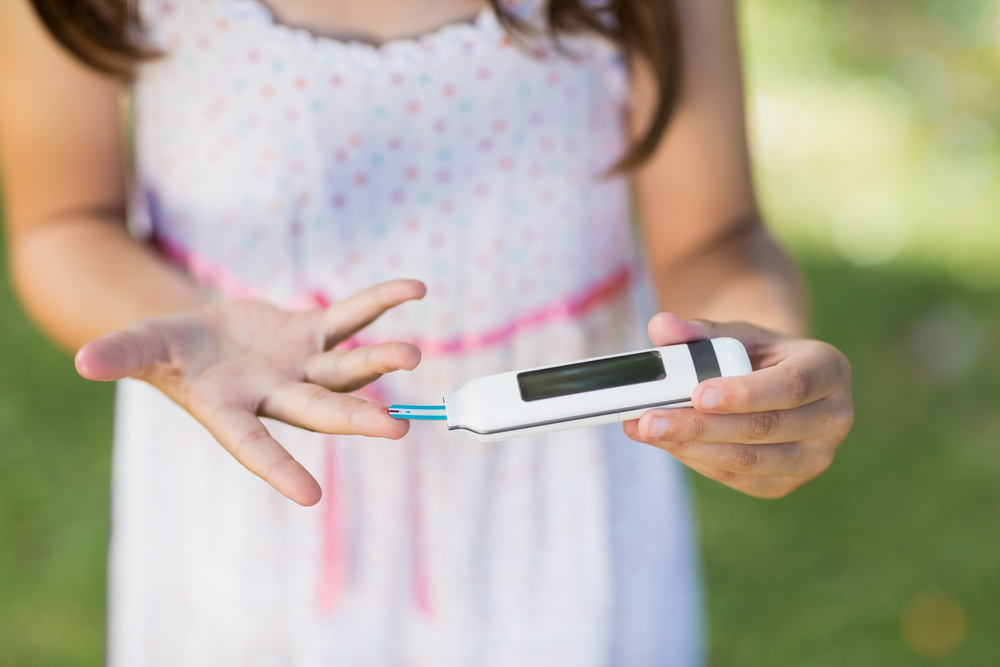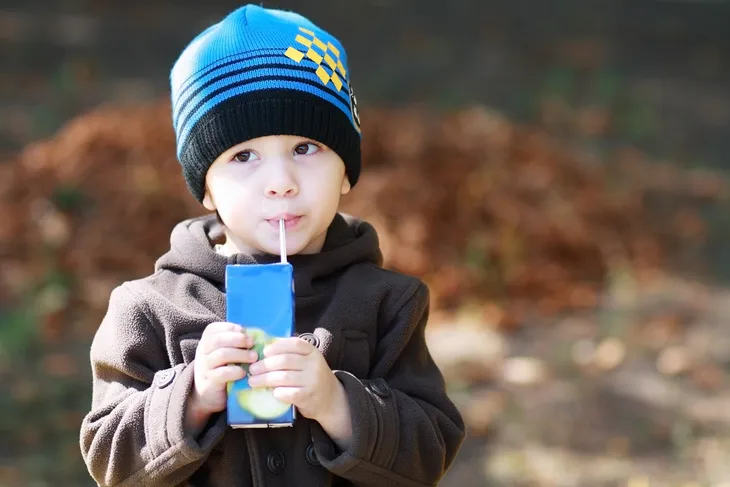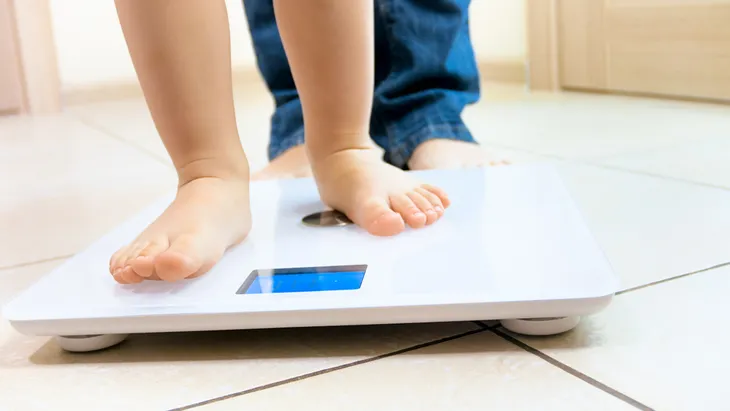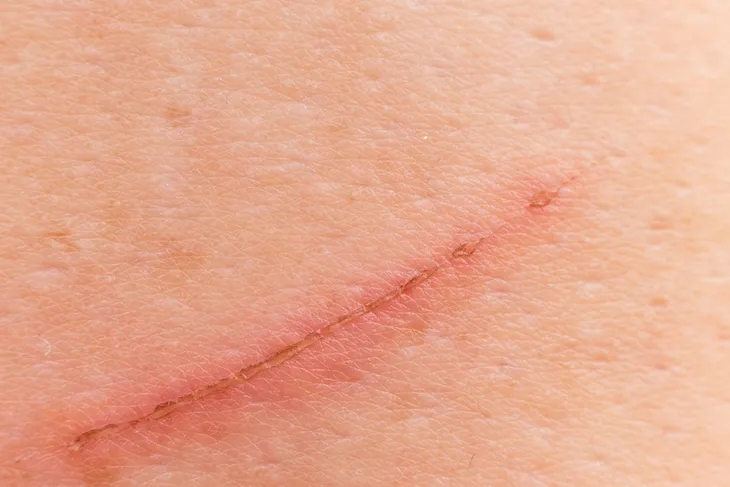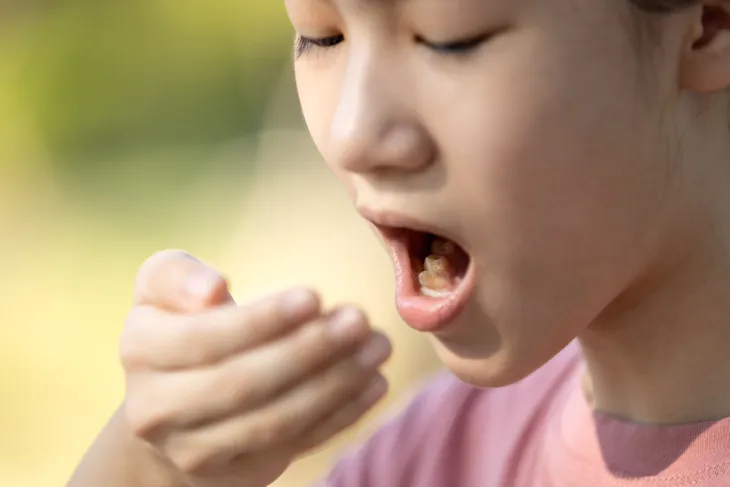Diabetes is often thought of as an adult disease, as it can be caused by diet and lifestyle choices (eating habits and alcohol consumption). However, a 3-year old in the U.S. was recently diagnosed as one of the youngest ever to be diagnosed with type 2 diabetes, while children can be struck early with the inability to produce the hormone that helps process sugars (glucose) (type 1 diabetes).
Diabetes in children can be fatal if you’re not aware of the symptoms and appropriate treatment is not provided. It’s important to know the symptoms of diabetes in children so you can act quickly.
Want diabetes content delivered straight to your inbox? Sign up for our Diabetes newsletter and receive exclusive news and articles written from our team of diabetes experts.
1. Frequent Urination
It can be hard to tell if your toddler is urinating more than often. But if you notice your youngster wetting their shorts (or bed) more often or complaining about needing to use the bathroom more frequently, it could be a cause for concern.
KidsHealth.org notes that more frequent urination is caused by the response of your child’s kidneys to higher levels of sugars (glucose) that aren’t being broken down to be used by their body. The kidneys are attempting to flush out the excess unprocessed sugars through the urine.
2. Excessive Thirst
Frequent urination will undoubtedly cause an increase in thirst, as your child’s body attempts to stay hydrated. It’s not just getting thirstier at various intervals—the thirst can be continuous, according to experts.
The urge to drink fluids all the time also increases the need to urinate, so it can become obvious as the cycle perpetuates itself, notes the Mayo Clinic. If your child is always whining for another glass of juice or water, it may be more than their love of those drinks—it could be they’re trying to quench their insatiable thirst triggered by diabetes.
3. Weight Loss
When your child’s body can’t regulate blood sugar levels, it will start using other sources of energy besides sugars. This means it will start burning off fats and sugars. This can result in noticeable weight loss.
When the body breaks down fats as a primary source of energy, it creates a buildup of acids in the bloodstream, notes the Mayo Clinic. This condition is called diabetic ketoacidosis and can require a trip to the emergency room. You should watch for symptoms such as nausea, fatigue, and abdominal pain.
4. Impaired Vision
The Canadian Diabetes Association notes that diabetes is actually the leading cause of blindness across North America. The disease affects your eye’s retina and the vessels that feed it (diabetic retinopathy), which eventually causes your eyesight to fade.
The association noted there are various stages and manifestations of this diabetics complication, which can range from blurred vision to increased “floaters” to a sudden loss of eyesight. The source says it affects 23-percent of people with type 1 diabetes.
5. Moodiness
Your child may not be acting like their usual sunny self, which could be a sign that something is happening with their blood sugars. HealthCentral.com notes in a 2011 article that mood swings can be hard to detect in already excitable children.
Too little blood sugar (known as hypoglycemia) or too much blood sugar (known as hyperglycemia) can have opposite effects on your child, says HealthCentral.com. Too much glucose can make your child feel less than ideal and cause them to act out.
6. Weakness
Prolonged and unexplained fatigue in your child could be a sign of low blood sugar, causing weakness and even shakiness, according to HealthLinkBC. A study of adults with type 1 diabetes concluded that those who were deliberately kept at low sugar levels overnight had acute (sudden onset) fatigue in the morning. It also seems to have prolonged effects, as those in the study became tired more easily during activity the next day.
Another possible cause of fatigue in those with diabetes is diabetic neuropathy (nerve damage). The condition occurs when blood sugar is too high for too long, causing tingling and numbness as well as the wasting away of muscles coupled with weakness in the limbs. However, this may be more common in adults, because it takes some time to manifest and can be made worse by alcohol and other factors.
7. Extreme Hunger
Among the most common signs and symptoms of type 1 and 2 diabetes is extreme hunger. A child who is showing signs of diabetes will experience intense feelings of hunger, because their body isn’t producing enough of the hormone that regulates the amount of glucose in the blood. As a result, it’s not moving sugar into cells or organs, which causes a lack of energy in the organs, explains the Mayo Clinic.
“When a child’s body is deprived of energy due to low, [he or she] may experience the feeling of extreme hunger,” writes Best Health. However, the source goes on to note that this sign can be confusing because a decreased appetite is also a warning sign of diabetic ketoacidosis.
8. Slow-Healing Sores
Kids that are active are constantly getting skin scrapes or small bruises from playing around outside with friends during outdoor activities. It’s not uncommon to have to patch up a little cut and send them on their way. What’s unusual is if this little scrape or cut doesn’t go away. A child that is suffering from diabetes will begin to show slow-healing sores. According to Healthline, “sores or infections that are resistant to healing or slow to resolve may be a sign of type 2 diabetes.”
9. Fatigue
Again, the lack of sugar in their body will make him or her begin to feel extremely drowsy, tired and lethargic, because their body isn’t retaining enough sugar, which causes their organs to lack energy. “Your child may feel constantly tired or sluggish, because [he or she is] not able to turn the sugar in [his or her] bloodstream into energy that [his or her] muscles and organs can use,” writes Best Health.
10. Strange Smelling Breath
One of the strangest symptoms of all is that diabetes can cause a person’s breath to smell fruity of all things. I suppose there are worse things than this! While it might not be the worst smell, it’s not a good sign. “Burning fat instead of sugar produces certain substances (ketones) that can cause a fruity breath odor,” writes the Mayo Clinic.
WebMD describes this strange smelling breath as “sweet and fruity, or like wine.”
11. Darkened Skin
Another strange symptom of diabetes is a change in skin tone. These changes are often seen in the armpit and neck and occur as a result of resistance to the hormone released by the pancreas to regulate glucose in the blood. “[The hormone that regulates glucose in the blood] resistance can cause skin to darken, most commonly in the armpits and neck,” writes Healthline. “If your child has type 2 diabetes, you may notice areas of darkened skin. This condition is called acanthosis nigricans.”
12. Yeast Infections
This symptom is obviously specific to girls, but according to several sources (including Best Health), type 1 diabetes can cause yeast infections. When it comes to toddlers and babies, it obviously won’t appear as a yeast infection, but rather might show up as a really bad diaper rash.
